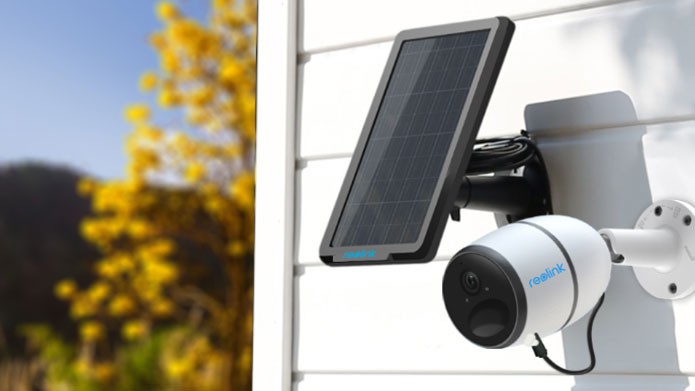Reolink passes its crowdfunding goal for Arlo Go competitor 4G camera
It offers a broader range of carriers

Sign up for breaking news, reviews, opinion, top tech deals, and more.
You are now subscribed
Your newsletter sign-up was successful
Crowdfunding champion Reolink is at it again, this time with Reolink Go, a security camera that uses 4G LTE signal rather than Wi-Fi.
At time of writing the camera is at over 150% of its funding goal, with a month left on the clock. This is the second successful crowdfunding effort by the company, following the Argus security camera.
We can’t quite put our finger on why but this campaign feels a little more like a marketing stunt than the previous outing. Perhaps it’s because the camera is so similar to the Arlo Go (even using the same name), but given the quality of the Argus, we’re hopeful that Reolink will be able to deliver a good product.
Solid specs
The camera itself looks like it’s going to be a great piece of kit if Reolink can deliver on its promises. The camera can either subside on a constant stream of energy from a solar panel, or by topping up its rechargeable batteries every two months.
Now, that’s no year-long claim like Eufy’s current crowdfunding security camera, but two months isn’t terrible. The camera is fairly feature packed, with 1080p footage, motion sensors, two-way audio, and night vision.
The Reolink Go does offer a wider range of providers than Arlo’s offering at present, and is currently cheaper too, coming in at $250 (about £180, AU$330), with early bird discounts available if you get it from the Indiegogo page.
One of the main problems that we had with the Arlo Go when we reviewed it was the dependency on good LTE signal. Allowing you to choose from a wider range of providers could help with this problem, as you can tailor your package to whichever provider has the best coverage in your area.
Sign up for breaking news, reviews, opinion, top tech deals, and more.
- Want to know what your best options are? Check out: Best security camera: keep an eye on your home from your smartphone

Andrew London is a writer at Velocity Partners. Prior to Velocity Partners, he was a staff writer at Future plc.